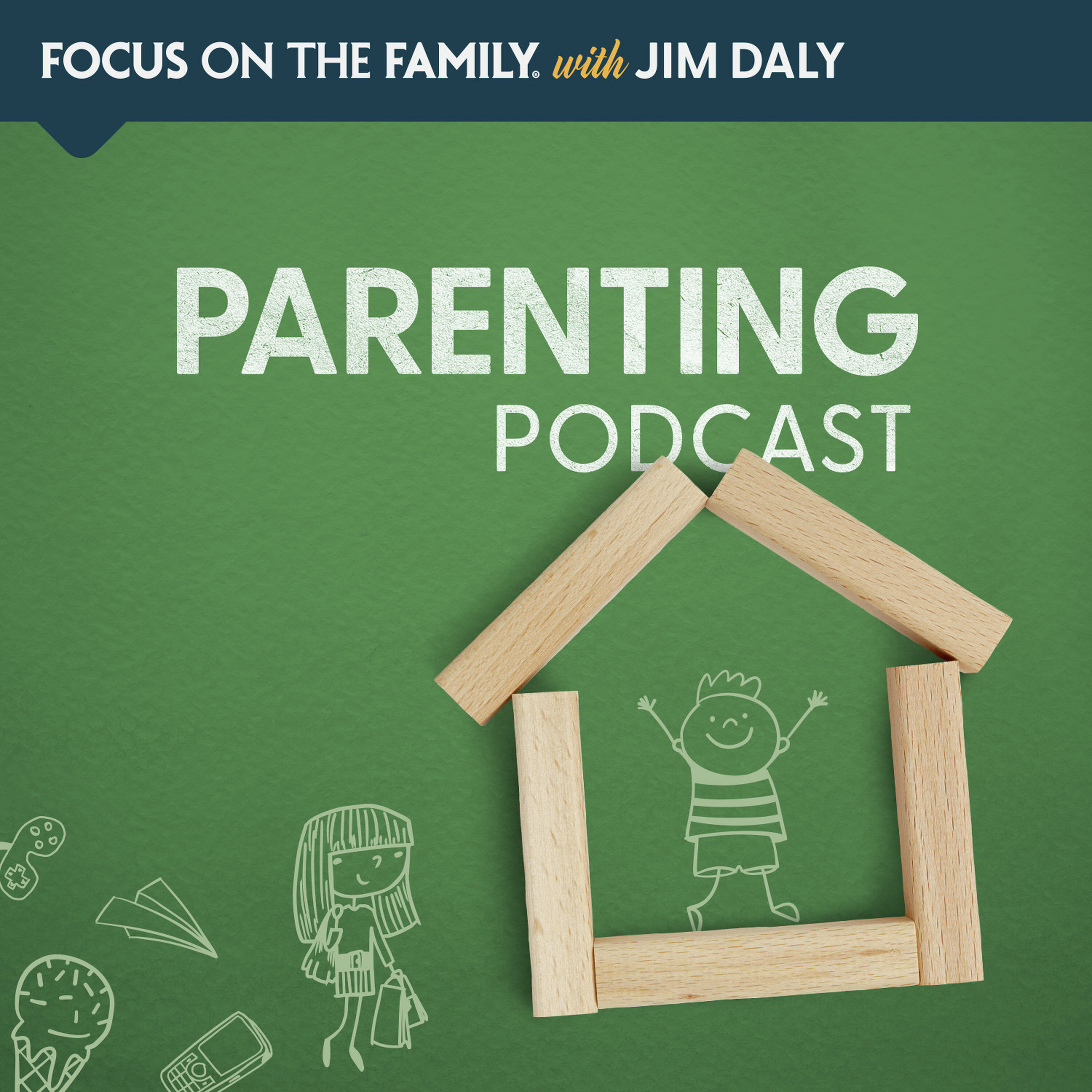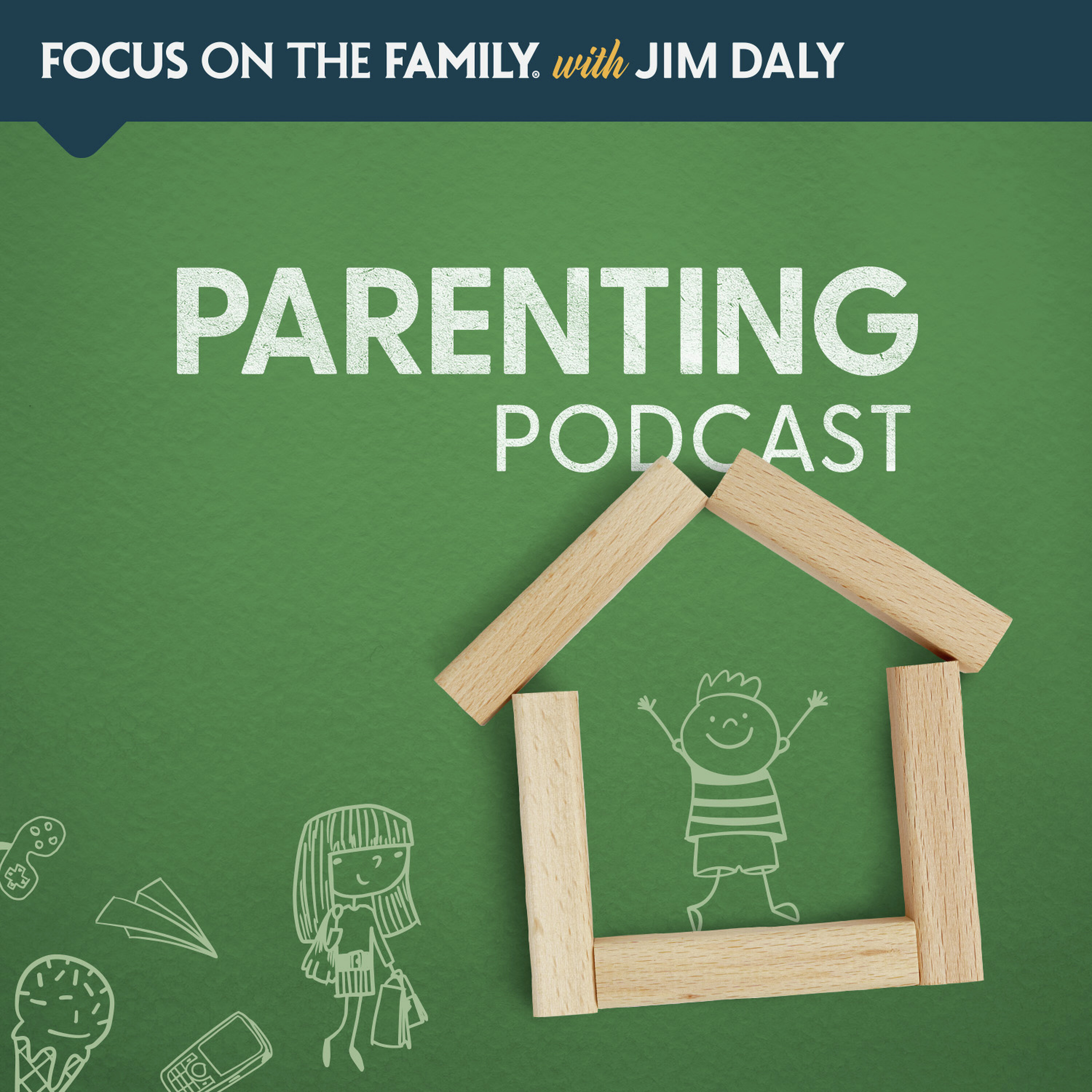
- Children learn differently; one child might be more active and experiential, while another is visual.
- Parents should help their children identify their preferred learning styles.
- Discovering how a child learns best is a key aspect of effective parenting.
Shownotes Transcript
Learning styles. What kind of learning style does your child have or do your children have? We have six kids, and I'm thinking we've got a couple of them with ADHD, and so sitting and passively reading a book is probably not the best way for them to go. In fact, one of them has a reading disability of sorts, and so...
just sitting down and doing didactic learning. Not so much. A couple of them, very creative. They have, they're, they're listening. And this was a big breakthrough for me, Danny. They're listening, even though they're doodling or fidgeting on something. Uh, boy, I learned so much trying to raise six kids. They're all doing super well right now. I'm so glad, but your goal as a mom or a dad is to figure out how is my child wired? What's the best educational solution? Uh,
And Danny, you have two kids. They learn differently, I'm guessing. Yes, they do. How does that work? That's so true. Great question. And we can't parent them the same. Now, I think if I recall correctly, your daughter Lexi's kind of more active. More experiential in her learning. She wants to experience it. Tactile, wants to have her whole body involved in the learning. And whereas my son, he's much more visual.
He likes the charts, the visual aids that go with whatever's being taught. He loves to see the lecture. He doesn't want to just read everything. He doesn't want just the audio. He wants to visually engage with what he's learning. And so it's been fun to see them discover their own learning styles and to discover alongside of them as they articulate, this is how I learn best. Because we could assume as parents, I think you learn this way.
Help your kids voice their opinion as to how they're learning as you learn more about these learning styles. The point is every child is different, and your job as a parent is to be a student of your child and help set them up for success. Let's go ahead and listen now to a conversation from Focus on the Family with Jim Daly. Jim spoke with Cynthia Tobias, and she shared why it's crucial for you as a parent to help your child develop a love of learning. Let's move into...
Really helping parents better understand options that they have, et cetera, learning styles. That's what we want to concentrate on. The book that you've written concentrates on that. So help us understand the problem of a one-size-fits-all approach to education generally. Well, in general, it was created by Horace Mann way back when. And it was during an age where we put children of a certain age and a certain grade. We taught subjects an hour at a time, everybody the same. And...
And a certain day and certain hours and sitting desks and all of that. Well, Horace Mann died, I don't know, something like 100 years before Alexander Graham Bell invented the telephone. That's how old it is. And for instance, Dell came out in 2017 with a futures report, the Dell Computer Company, and said the kids in school right now, the K through 12 kids,
By 2030, 85% of them are going to be in jobs that don't even exist yet. Please, you've got to help the children and the students themselves figure out how to learn, not just sit in those seats and get a grade in a subject. And so being a confident learner, in my mind, means taking what God gave you naturally. And there are no two alike. So if you treat those kids exactly alike...
They're not going to thrive. They're not going to understand how they learn. Your two boys are very different. My twin boys, two minutes apart, are very different. They responded differently. They had different likes and subjects. They did their homework differently. So if we insist on keeping our kids in a rigid system that we let somebody else determine, we're not going to really...
You know, God has a purpose. He created us for a purpose that no one else can fulfill. And every child, Dr. Thomas Armstrong had a great quote. He said, every child is an unrepeatable miracle. So the more we take away that individuality and make them an automaton or just a piece of the puzzle,
the greater offense we are to God. Or back to our opening comments about making them a societal change force for a direction they want to go. And I don't want to, through the thread of all of our discussion, that's the underlying thing, what's really happening in schools.
But you have identified some various learning styles, and we're going to get to those in a minute. But speak to how moms and dads can better understand and nurture their child's innate learning strengths. First of all, give yourself a lot of credit as a parent. You're teaching them to use a spoon.
how to breathe, how to eat. That was the easy part. You're a good teacher. And it doesn't mean that you have to homeschool them. There are many ways to do it other than that, or along with that, there are some great Christian schools that are actually coming alongside homeschoolers these days. And we're finding some incredible ways to help educate our children without necessarily putting them in a classroom the same way every day. But the credit...
A lot of it credit goes to parents. Have confidence in yourself first. You can do this. You can help your child learn because it's a partnership. What you don't know...
you can learn with them and that's a really valuable thing too. - Although back to your original point, I mean one of the things here to teach them reading, writing and arithmetic, those scores have continued to fall over the last few decades. So it really comes down to the definition of what the NEA means, to learn. Because they're not doing the job that they once did when it came to teaching children those basic skills. Now it's a whole bunch of other stuff.
Danny, such useful stuff from Cynthia Tobias. She's a walking encyclopedia when it comes to educational options and learnings. Now, I'm sure some parents can get kind of paralyzed. There's so many options available. What do I do? How do I know if it works? What's your encouragement to the mom or dad who's still kind of searching for the right thing? Yeah, that's a great question. I mean,
And I love in the clip where Cynthia says, every child is an unrepeated miracle. And I love that. That was thinking about just kids in general as parents, if we can see them as an unrepeated miracle, I think it gives us a good mindset with each of our kids that there's a lot to explore with them.
Be patient with this. Your child is still learning as they're going into these other school places, places of learning, and maybe they're not doing so well, but they're still developing great connections in their brain. They're learning how to be adaptive to other learning environments and other ways of learning. So it's not time lost. But as you find that sweet spot where they learn the best and
you will learn more and more about that child. So there are a lot of great options. There's homeschooling, there are charter schools and specialized charter schools. There are magnet schools. There are a variety of public schools and then Christian schools, private Christian schools that have specialization. My head exploded, Danny. There's too much. So as you're looking around, talk to other parents.
And get to know what their kids' learning styles are like. Maybe you're in a small group and you can learn more about the local options and how other parents' kids have thrived maybe in a certain setting. And maybe it's a child that's very similar to yours. And you can narrow it down by learning how maybe other families have handled all these different options together.
But just hang in there, go the long game with your child. They'll eventually really find their sweet spot in their learning, especially if they're motivated to learn.
They'll find a place where, especially in college, you can find a place where you learn and you're motivated on the topic that you're wanting to learn. So be encouraged. And we have some resources here that we're going to point out. And I don't want to overload you with options, but one thing to begin with would be something that Cynthia Tobias has developed called the Learning Styles Profile. And
And we're linking over to that page of resources that she has in the episode notes. It's going to help you better understand your child's learning style and abilities. And then Cynthia has a great book called Reclaiming Education. Teach your child to be a confident learner, which we're making available for a donation of any amount to this show and this ministry today.
contribute to the work of Focus on the Family with a monthly gift or one-time donation. We'll send that book, Reclaiming Education, to you. All the details are in the show notes. And then, Danny, let me tee it up. Another podcast beyond this one, if you want to go deeper, The Thriving Student Podcast. It's a wonderful podcast that provides you with – it's a series, so it's not an ongoing one –
And it provides you insights as to what is happening in the school system, how to respond to that, how to advocate for your child, but really how to understand what is out there educationally for your child when it comes to the public school system. Stop by the show notes. That's the starting point to get all the help or at least some of the help you need today. And just know that we're here. We've got a great team, lots of resources. If you don't find what you're looking for, give us a call.
Well, on behalf of Dr. Danny Huerta and the entire team, I'm John Fuller. Thanks for listening today. Next time, how to relate to teen girls. Hope you can join us then. And thanks for listening today to the Focus on the Family Parenting Podcast.
If the fights with your spouse have become unbearable, if you feel like you can't take it anymore, there's still hope. Hope Restored Marriage Intensives have helped thousands of couples like yours. Our biblically-based counseling will help you find the root of your problems and face them together. Call us at 1-866-875-2915. We'll talk with you, pray with you, and help you find out which program will work best. That's 1-866-875-2915.
2915.
